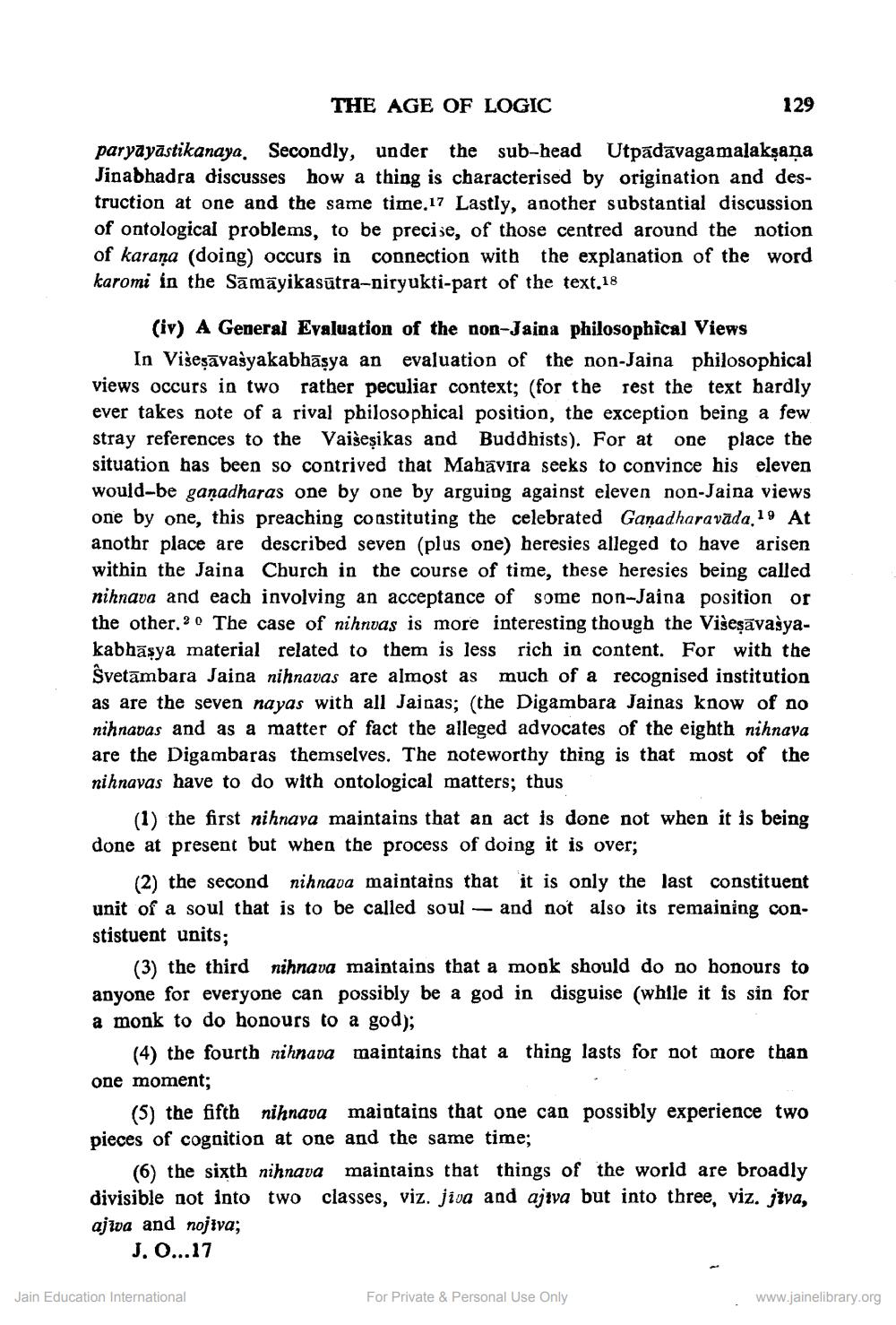________________
THE AGE OF LOGIC
129
paryayāstikanaya. Secondly, under the sub-head Utpadavagamalakşaņa Jinabhadra discusses how a thing is characterised by origination and destruction at one and the same time.17 Lastly, another substantial discussion of ontological problems, to be precise, of those centred around the notion of karaņa (doing) occurs in connection with the explanation of the word karomi in the Sāmāyikasūtra-niryukti-part of the text.18
(iv) A General Evaluation of the non-Jaina philosophical Views
In Višeşāvasyakabhāşya an evaluation of the non-Jaina philosophical views occurs in two rather peculiar context; (for the rest the text hardly ever takes note of a rival philosophical position, the exception being a few stray references to the Vaišeșikas and Buddhists). For at one place the situation has been so contrived that Mahavira seeks to convince his eleven would-be ganadharas one by one by arguing against eleven non-Jaina views one by one, this preaching constituting the celebrated Ganadharavada, 19 At anothr place are described seven (plus one) heresies alleged to have arisen within the Jaina Church in the course of time, these heresies being called nihnava and each involving an acceptance of some non-Jaina position or the other.2 0 The case of nihnvas is more interesting though the Višeşāvasyakabhāsya material related to them is less rich in content. For with the Svetāmbara Jaina nihnavas are almost as much of a recognised institution as are the seven nayas with all Jainas; (the Digambara Jainas know of no nihnavas and as a matter of fact the alleged advocates of the eighth nihnava are the Digambaras themselves. The noteworthy thing is that most of the nihnavas have to do with ontological matters; thus
(1) the first nihnava maintains that an act is done not when it is being done at present but when the process of doing it is over;
(2) the second nihnava maintains that it is only the last constituent unit of a soul that is to be called soul - and not also its remaining constistuent units;
(3) the third nihnava maintains that a mook should do no honours to anyone for everyone can possibly be a god in disguise (while it is sin for a monk to do honours to a god);
(4) the fourth nihnava maintains that a thing lasts for not more than one moment;
(5) the fifth nihnava maintains that one can possibly experience two pieces of cognition at one and the same time;
(6) the sixth nihnava maintains that things of the world are broadly divisible not into two classes, viz. jiva and ajtva but into three, viz. jiva, ajiva and nojiva;
J. O...17
Jain Education International
For Private & Personal Use Only
www.jainelibrary.org




